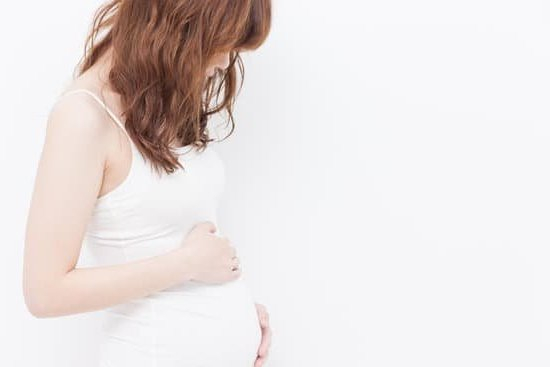Pregnancy is a transformative journey for many individuals, marked by physical, emotional, and hormonal changes. One of the first steps in this journey is recognizing the early signs and symptoms of pregnancy. Knowing what to look out for can help individuals navigate this exciting and sometimes overwhelming time with more awareness and preparation.
What are the signs and symptoms of early pregnancy? From nausea and morning sickness to tender breasts and fatigue, the body undergoes significant changes in the early stages of pregnancy. These physical manifestations are often accompanied by emotional shifts such as mood swings and increased sensitivity. Recognizing these signs can be crucial in understanding one’s potential pregnancy status.
In addition to the more well-known symptoms, there are other subtle signs that may indicate early pregnancy, such as changes in appetite and heightened sensitivity to smells. Understanding these nuances can provide further clarity on whether one might be pregnant or experiencing other health issues. It is essential to stay informed and take note of any unusual bodily sensations during this time.
The Science Behind Early Pregnancy
During early pregnancy, the body undergoes various hormonal changes that play a crucial role in supporting the development of the fetus. These hormonal fluctuations are essential for preparing the body for pregnancy and childbirth. One of the key hormones involved in early pregnancy is human chorionic gonadotropin (hCG). This hormone is produced by cells in the placenta and is responsible for maintaining the production of other vital hormones like estrogen and progesterone.
To better understand the science behind early pregnancy, it’s important to recognize how these hormonal changes can manifest in different ways. For instance, many women experience implantation bleeding, which occurs when the fertilized egg attaches itself to the uterus lining. This can result in light spotting that is often mistaken for a menstrual period. Additionally, rising levels of hCG can lead to symptoms like frequent urination and heightened sense of smell.
- Implantation bleeding
- Frequent urination
- Heightened sense of smell
Along with hCG, progesterone levels also increase significantly during early pregnancy. This hormone helps maintain a healthy uterine lining to support fetal growth. As a result, many women may experience symptoms like breast tenderness and fatigue due to elevated progesterone levels. These physical changes are common signs that your body is adjusting to the demands of pregnancy.
- Breast tenderness
- Fatigue
In summary, understanding the hormonal changes that occur during early pregnancy can provide valuable insight into why certain signs and symptoms manifest. By recognizing these changes, women can better prepare themselves for the journey ahead and seek medical advice when needed. It’s essential to remember that every woman’s experience with early pregnancy may vary, so listening to your body and consulting with a healthcare provider are critical steps in ensuring a healthy pregnancy journey.
Common Signs and Symptoms
During the early stages of pregnancy, many women experience nausea and morning sickness as prominent signs and symptoms. These sensations can vary in intensity from mild queasiness to persistent vomiting, affecting women differently. It is important to understand that these symptoms are typically attributed to the hormonal changes occurring in the body during pregnancy.
Common Signs and Symptoms of Early Pregnancy
- Nausea
- Morning Sickness
- Heightened sense of smell
Nausea and morning sickness are commonly associated with early pregnancy, often occurring within the first few weeks after conception. While the exact cause of these symptoms is not fully understood, it is believed that the surge in hormone levels, particularly hCG (human chorionic gonadotropin) and estrogen, play a significant role in triggering these reactions.
Physical Changes to Look Out For
- Tender and swollen breasts
- Fatigue and tiredness
- Frequent urination
In addition to nausea and morning sickness, women may also experience tender breasts and fatigue as physical signs of early pregnancy. These changes can be attributed to the increase in progesterone levels, which help prepare the body for sustaining a pregnancy. Understanding these common signs and symptoms can help individuals recognize the early stages of pregnancy and seek appropriate medical guidance for their prenatal care.
Physical Changes in Early Pregnancy
During the early stages of pregnancy, physical changes can occur that are often indicative of a developing pregnancy. One of the most common signs experienced by many women is tender breasts. This symptom is usually one of the first indicators that a woman may be pregnant.
Hormonal changes in the body can lead to an increase in blood flow and hormonal fluctuations which can cause the breasts to become swollen, sore, and sensitive to touch. It’s important for women to pay attention to these changes as they can help identify early pregnancy.
Dealing With Breast Tenderness
For women experiencing tender breasts during early pregnancy, there are some tips to help alleviate discomfort. Wearing a supportive bra, such as a sports bra, can provide added support and reduce movement which may exacerbate tenderness. Applying a warm compress or taking a warm bath may also help soothe soreness. Additionally, avoiding caffeine and consuming foods rich in vitamin E and B6 can potentially relieve breast tenderness.
Fatigue: A Common Symptom
Fatigue is another common physical change that many women experience during early pregnancy. The hormonal changes taking place in the body, particularly increased levels of progesterone, can result in feelings of tiredness and exhaustion. Women may find themselves needing more rest than usual or feeling drained even after getting enough sleep. It’s important for expectant mothers to listen to their bodies during this time and prioritize rest whenever possible.
Emotional Changes
Understanding Emotional Changes in Early Pregnancy
During early pregnancy, women often experience emotional changes that can range from mood swings to increased emotional sensitivity. These emotional shifts are commonly attributed to the hormonal fluctuations happening in the body as it adjusts to the presence of a developing fetus. It is essential for pregnant individuals and their partners to be aware of these emotional changes and understand that they are a natural part of the pregnancy process.
Mood Swings: Rollercoaster of Emotions
One of the most common signs of early pregnancy is intense mood swings. Women may find themselves feeling elated one moment and weeping uncontrollably the next, without any apparent reason. These sudden changes in mood can be challenging to manage but are entirely normal due to the surge in hormone levels during pregnancy. It is essential for partners and loved ones to provide support, understanding, and patience during this time as pregnant individuals navigate these emotional ups and downs.
Increased Emotions: Heightened Sensitivity
In addition to mood swings, women may also experience heightened emotions during early pregnancy. This means that they might feel more sensitive or reactive to situations that wouldn’t have affected them as strongly before. Simple things like a heartwarming commercial or a minor disagreement with a loved one could trigger strong emotions. Understanding this increased sensitivity and acknowledging it as a valid part of the pregnancy journey can help individuals cope better with these overwhelming feelings.
Overall, recognizing and accepting these emotional changes as typical signs of early pregnancy can help women navigate this period with more ease and grace. Open communication with healthcare providers, seeking support from loved ones, and practicing self-care techniques can all contribute to managing these emotional shifts effectively during the early stages of pregnancy.
Other Signs to Look Out For
In addition to the common signs and symptoms like nausea and fatigue, changes in appetite and sensitivity to smells are also common indicators of early pregnancy. Many women may notice a sudden aversion to certain foods they used to enjoy or cravings for new types of food.
This change in appetite can be one of the first signs that something different is happening in their bodies. On the other hand, some women may experience increased hunger or need to eat more frequently than usual.
Moreover, heightened sensitivity to smells is another telltale sign of early pregnancy. Pregnant women often find that certain odors that never bothered them before are now overpowering and even nauseating. Additionally, strong fragrances or cooking smells may trigger intense reactions that they did not experience prior to becoming pregnant. These changes in olfactory perception can sometimes be so profound that they lead to feelings of queasiness.
It is important for women who suspect they might be pregnant and are experiencing these signs to pay attention to their bodies and take notes of any unusual symptoms. Keeping track of changes in appetite and responses to smells can help provide valuable information when discussing potential pregnancy with a healthcare provider. This data can assist medical professionals in making an accurate diagnosis and providing appropriate guidance for a healthy pregnancy journey.
| Signs | Symptoms |
|---|---|
| Changes in Appetite | Nausea, aversions, cravings |
| Sensitivity to Smells | Heightened sense, aversion to certain odors |
When to Take a Pregnancy Test
Taking a pregnancy test at the right time is crucial for accurate results. The best time to take a pregnancy test is about a week after your missed period. This allows enough time for the hormone hCG, known as human chorionic gonadotropin, to build up in your system if you are pregnant. Testing too early can result in a false negative, so it’s important to be patient and wait until the appropriate time.
If you have irregular periods or are unsure of when your next period is due, there are early pregnancy tests available that can detect hCG levels even before your missed period. These tests are more sensitive and can provide results earlier, but still, waiting at least a few days after a missed period can increase the accuracy of the test.
It’s also important to follow the instructions on the pregnancy test kit carefully to ensure proper usage and accurate results. Using first-morning urine, which is more concentrated with hCG, can also improve the accuracy of the test. If you get a positive result, it’s advisable to follow up with a healthcare provider to confirm the pregnancy and start prenatal care.
| Signs | Symptoms |
|---|---|
| Nausea | Morning Sickness |
| Tender Breasts | Fatigue |
| Mood Swings | Increased Emotions |
Seeking Medical Advice
When experiencing the signs and symptoms of early pregnancy, it is essential to seek medical advice from a healthcare provider. While some signs may be common and expected, each woman’s pregnancy journey is unique, and consulting a healthcare professional can provide personalized guidance and support. A healthcare provider can confirm the pregnancy through a blood test or ultrasound and offer valuable information on prenatal care, nutrition, and lifestyle modifications to ensure a healthy pregnancy.
In addition to confirming the pregnancy, a healthcare provider can assess any potential risks or complications based on your medical history and current symptoms. Early prenatal care is crucial for monitoring the progress of the pregnancy, addressing any concerns that may arise, and receiving necessary medical interventions if needed.
Regular check-ups with a healthcare provider can help track the development of the fetus, manage any discomfort or health issues experienced during pregnancy, and offer peace of mind for expectant mothers.
Moreover, seeking medical advice early in pregnancy allows for timely access to prenatal vitamins, screenings, and vaccinations recommended for pregnant women. A healthcare provider can also provide educational resources on childbirth preparation classes, breastfeeding support, and postpartum care. By establishing a strong relationship with your healthcare provider from the beginning of your pregnancy journey, you can feel empowered to make informed decisions about your health and well-being as you navigate this transformative experience.
Conclusion
In conclusion, recognizing the signs and symptoms of early pregnancy can be a pivotal moment for many women who are trying to conceive or may not be expecting it. It is important to understand the various changes that occur in the body during this crucial period, from hormonal fluctuations to physical and emotional transformations.
Nausea and morning sickness, tender breasts, fatigue, mood swings, increased emotions, changes in appetite, and sensitivity to smells are all common indicators that a woman may be pregnant.
While each woman’s experience with early pregnancy can vary, being aware of these potential signs can help individuals make informed decisions about their health and well-being. Knowing when to take a pregnancy test is also crucial in order to confirm any suspicions and start planning for the future accordingly. Furthermore, seeking medical advice from a healthcare provider is essential to ensure proper prenatal care and support throughout the pregnancy journey.
Ultimately, embracing the early signs of pregnancy is a personal and profound experience that many women cherish. It marks the beginning of a new chapter in life filled with excitement, anticipation, and love. By being attuned to one’s body and understanding what it may be signaling, individuals can embark on this transformative journey with knowledge and confidence. What an incredible time of growth and change ahead for those who are embarking on this miraculous journey of motherhood.
Frequently Asked Questions
How Early Do Pregnancy Symptoms Start?
Pregnancy symptoms can start as early as a week after conception, but most women typically experience them around 6-8 weeks into their pregnancy. These symptoms can vary from person to person and may include nausea, fatigue, breast tenderness, and frequent urination.
What Are the 3 Main Symptoms of Early Pregnancy?
The three main symptoms of early pregnancy are typically nausea (often referred to as morning sickness), fatigue, and breast tenderness. Nausea is commonly one of the earliest signs that many women experience, while fatigue can be overwhelming during the first trimester. Breast tenderness is also a common symptom due to hormonal changes in the body.
What Symptoms Do You Have at 1 Week Pregnant?
At 1 week pregnant, most women may not even be aware that they are pregnant yet since conception usually occurs around the second week of the menstrual cycle. However, some women may notice very early signs such as light spotting or cramping which could be mistaken for a normal period.
These subtle symptoms are often missed or overlooked until a missed period prompts further investigation.

Welcome to my fertility blog. This is a space where I will be sharing my experiences as I navigate through the world of fertility treatments, as well as provide information and resources about fertility and pregnancy.





